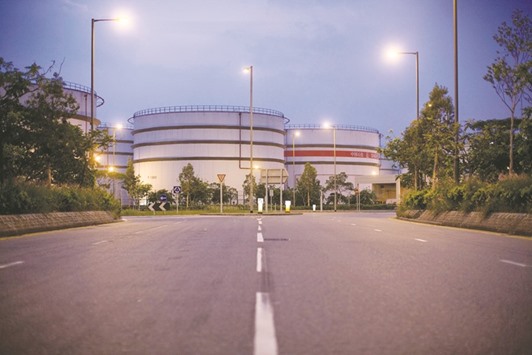China Petroleum & Chemical Corp is selling a 50% stake in a pipeline unit to investors including China Life Insurance Co for 22.8bn yuan ($3.3bn) as it seeks funds to expand its natural gas business.
China Life will pay 20bn yuan for a 43.86% stake in the pipeline, while a division of State Development & Investment Corp will get the remaining 6.14% for 2.8bn yuan, the state energy giant, known as Sinopec, said in a statement to the Hong Kong Stock Exchange.
Sinopec, the world’s biggest refiner and one of China’s big three energy companies, will use the funds to expand the capacity of the unit, Sinopec Sichuan-to-East China Gas Pipeline Co, build gas-storage facilities and push forward its natural gas business, it said in the statement.
“There is a shortage of pipeline capacity and gas storage facilities in China, so the government is encouraging more investment in those sectors,” Tian Miao, a Beijing-based analyst at North Square Blue Oak, said by phone. “This is part of broader efforts by authorities to diversify investment into cash-intensive infrastructure projects.”
Sinopec shares in Hong Kong closed up 0.9% to HK$5.62 yesterday, compared with a 0.1% advance in Hong Kong’s benchmark Hang Seng Index.
President Xi Jinping’s government is seeking to boost the use of natural gas in China’s energy mix and revamp the country’s massive state-owned enterprises.
The country’s gas demand may rise to as high as 350bn cubic metres by 2020, according to the National Energy Administration, up from 193.2bn last year.
Sinopec, along with China’s biggest producer, PetroChina Co, have sold parts of its extensive pipeline assets since last year to raise capital, cut costs and meet government-set growth targets as lower oil prices have punished earnings.
“This transaction is a positive example of reform as the industry seeks to improve returns by shedding low returning assets,” Neil Beveridge, a senior analyst at Sanford C Bernstein in Hong Kong, said by e-mail. “With stable cash flows and a regulated return on asset at 8%, pipelines make better assets for insurance companies than oil majors.”
The implied valuation for the Sinopec pipeline asset represents a price-to-earnings ratio of 20 times, better than the valuation multiples for the spinoff of PetroChina’s three West to East pipelines at a price-to-earnings ratio of 17 times, according to Beveridge.
It may push PetroChina, the country’s biggest gas producer and importer, to continue to sell down its pipeline network in China that carries a book value of $56bn, he said.
Sinopec approved the plan to sell as much as half of the pipeline unit in August. The whole division was estimated to be valued at $6bn, an analyst at China International Capital Corp said at the time.
The Beijing-based company started operating the gas pipeline, which links eastern China to the Puguang gas field in Sichuan province, in 2010. It can transport as much as 12bn cubic meters of the fuel annually.
The 2,229-kilometre (1,385 miles) line, which transmitted 8.3bn cubic metres of natural gas in 2015, links six provinces and two municipalities, including Shanghai.
The company invested 63bn yuan to build the pipeline, according to the state-controlled daily.

China Petroleum & Chemical Corp storage tanks are seen in Hong Kong. The state energy giant, known as Sinopec, is selling a 50% stake in a pipeline unit to investors including China Life Insurance Co for $3.3bn as it seeks funds to expand its natural gas business.
